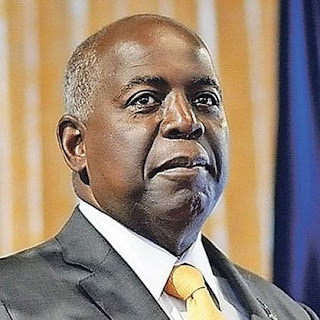Against the backdrop of a devastating hurricane season that once again underscored the region’s extreme vulnerability, the Caribbean Development Bank (CDB) will take the Caribbean’s climate agenda to the global stage at the 30th Conference of the Parties (COP30) to the United Nations Framework Convention on Climate Change, scheduled for November 10–21 in Belém, Brazil.
The Bank will lead and participate in a series of events, high-level discussions and bilateral engagements aimed at securing greater access to concessional climate finance and strengthening partnerships for sustainable development. CDB President, Mr. Daniel M. Best said this intensified engagement reflects both the urgency and opportunity of the moment.
“The Caribbean’s climate reality has never been clearer or more urgent,” he emphasised. “The recent passage of Hurricane Melissa has underscored what we’ve been warning for years: without predictable, concessional finance, small island states cannot keep pace with escalating climate impacts. COP30 is one of the most consequential arenas for advancing our case for climate justice and fair financing, and the Caribbean Development Bank will ensure our region’s voice is heard.”
At COP30, the Bank strategically engage governments, international partners, and private investors to deepen partnerships and advocate for increased concessional financing and innovative mechanisms to mobilise resources for the region. On Monday, November 17, 2025, CDB will co-host three side events that reflect key priorities for climate action and resilience in the Caribbean.
The first session, “Leveraging Private Sector Financing for Transport and Energy Sector Transformation in the Caribbean,” will be held from 10:30 - 11:30 am (BRT) at the CARICOM Pavilion. The event will explore strategies to unlock private capital through blended finance models, risk-sharing instruments, and innovative partnerships to accelerate investment in renewable energy and sustainable transport systems.
A discussion on “Agriculture and Food Security in the Caribbean: Scaling Innovative Solutions for Climate-Resilient Agriculture” is slated for 12:00 - 1:00 pm (BRT) at the Food and Agriculture Pavilion. The livestreamed event will spotlight climate-smart agricultural practices and investment opportunities that can strengthen food security and reduce the region’s dependence on imports.
CDB will also join forces with CAF – Development Bank of Latin America and the Caribbean, the Central American Bank for Economic Integration (CABEI) and the CREWS Secretariat to turn attention to disaster preparedness with a panel on “Climate Information and Early Warning Systems for Latin America and the Caribbean” Scheduled for 3:45–4:45 pm (BRT) at the CARICOM Pavilion, the discussion will explore initiatives by the three institutions to finance and implement early warning systems for the region.
“CDB’s agenda at COP30 underscores our approach to climate action, which is practical, innovative, and built on partnerships,” President Best noted. “The Caribbean is helping itself by developing our own solutions to protect lives, preserve livelihoods and transform our energy, transport and agriculture systems to secure our future, but we need the global community to stand with us.”
CDB targets 30-35% of its resources to climate finance demonstrating its commitment to helping Borrowing Member Countries adapt to the accelerating climate crisis. The Bank is also better positioned to deliver transformative regional interventions through a recent increase in its GCF financing threshold to USD 250 million and its new Climate Change Project Preparation Fund, both of which will help countries design and finance concrete, high-impact projects faster and more effectively.








